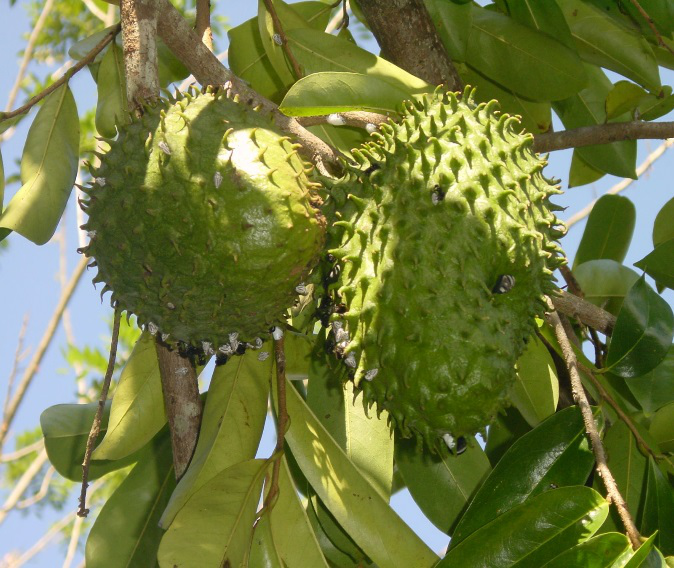Description
Botanical: Annona muricata
Other common names: Soursop, Guanábana, Guanavana, Guanaba, Corossol Epineux, Huanaba, Toge-banreisi, Durian Benggala, Nangka Blanda, Brazilian Paw-Paw
Graviola has a long history in the Amazon and West Indian tropics as a remedy for many ailments and particularly as an effective vermifuge, expelling internal worms and parasites. It has also been used torelieve depression and nervous disorders, as well as acting as an astringent to ease diarrhea. As a broad-spectrum antibacterial and antifungal, Graviola is thought to be helpful in cases of bacterial and fungal infections.
Country of Origin: Peru
Beneficial Uses:
The acetogenins in Graviola are believed to be extremely effective in destroying and expelling internal parasites and worms (confirming the historic use of the herb in many tribal medicines in many different geographic locations).
Graviola is condidered a broad-spectrum antibacterial when used internally and externally, an antimicrobial and antifungal, and has thus been used to treat a variety of fungal and bacterial infections.
Regarding heart health, Graviola is said to be a cardiotonic that tones, balances and strengthens heart function. It is also believed to be a vasodilator with hypotensive properties that may be helpful in reducing high blood pressure. The herb is also said to slow the heartbeat.
Graviola is thought to relieve temporary depression and nervous conditions. It acts as a nervine that strengthens the functional activity of the nervous system and performs as a relaxant and herbal tranquilizer, easing the discomforts of nervous disorders, stress and anxiety. It has been used in traditional medicine for its tranquilizing effects. One of its constituents, tryptophan, is an essential amino acid with a documented slee- inducing effect. In animal laboratory tests in 1997, the alkaloids in Graviola were found to exhibit significant antidepressive results, increasing the neurotransmitters, dopamine and norepinephrine. Dopamine is commonly associated with the pleasure system of the brain, providing feelings of enjoyment and the reinforcement to motivate us.
As an astringent, Graviola is believed to be effective in cases of diarrhea and dysentery. The antibacterial properties may also enhance the efficacy of Graviola in these situations.
Contraindications:
Graviola Herbal Supplement should be used only under the auspices of a knowledgeable health care provider. Pregnant and nursing women should not use Graviola, and it is not recommended for people who take antidepressants or blood pressure medications. People with Parkinson's Disease should avoid Graviola.
Extended use (more than one month without a one week interval) is not recommended, as chronic, long-term use of this plant may lead to die-off of friendly bacteria in the digestive tract due to its antimicrobial properties, thus, supplementing the diet with probiotics and digestive enzymes is advisable if this plant is used for longer than thirty days. Large amounts may cause nausea and gastric distress. Avoid combining Graviola with ATP-enhancers, such as CoQ10. Recent research has indicated that great care should be exercised with the use of Graviola.


